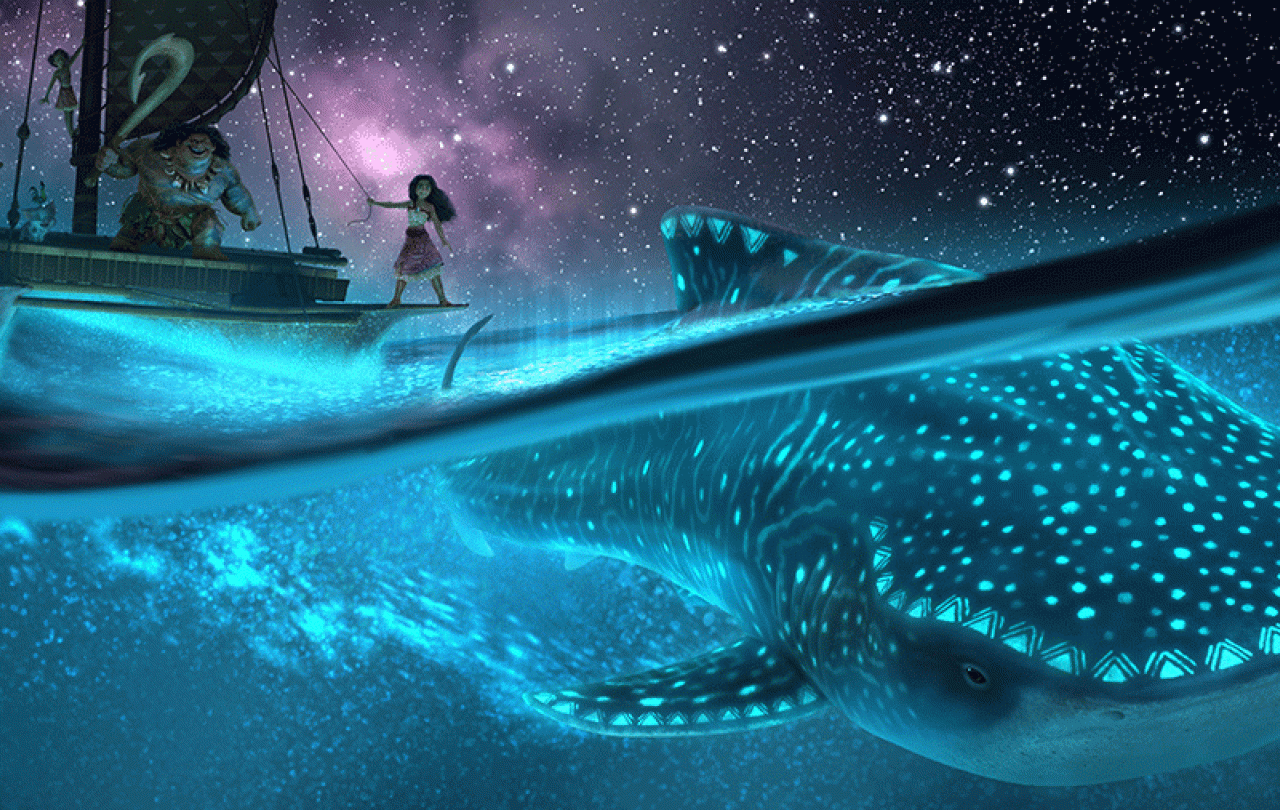
Watching Moana 2 in a packed cinema filled with little girls giggling with excitement at every slapstick moment in the film was the highlight of my weekend. It was Saturday afternoon and my foster daughter and I found ourselves surrounded by several birthday parties of local children, many dressed up in leis and straw skirts, and exuding the sun-kissed tropical holiday vibe.
I wasn’t expecting much from this sequel beyond a welcome reunion of characters from the original film, and I was certainly right not to raise my hopes when it came to the songs – they pale into obscurity in comparison to the excellent soundtrack of the first film. However, Moana 2 definitely put the wind in my sails - as well as made me reconsider getting a tattoo.
Having just seen Paddington in Peru, released two weeks earlier, I couldn’t help but notice the similarities. Two much-loved characters, two long-awaited sequels, and two films about origin story journeys. While the Peruvian bear crosses one ocean following a letter from his Great Aunt Lucy, Polynesian Moana crosses another following a more supernatural call from her ancestors. Both find themselves in small boats on dangerous waters, wondering if they’ll ever find their long-lost family, and what sort of welcome awaits them.
The quest to discover family roots seems to resonate widely – but for children in foster care it is especially pertinent. There is a very moving moment in Paddington in Peru where he asks himself where he really belongs – the place where he was born, or the place he has come to see as home?
The tension in Moana is similar - between the home she’s left behind, and the connection she is trying to find with her ancestors. Her quest for identity and purpose lies at the heart of the movie. As Maui sings: “Who are ya? Who are ya? Who are ya gonna be? Come on-a, Moana – go get your destiny.”
These travellers aren't seen as strange outsiders or potential threats; instead, they're embraced as long-lost family. Their treacherous journeys are honoured, not criticised.
Both my father and my father-in-law have spent a lot of time documenting our family histories. On my side of the family, I have historical connections with Sri Lanka, India, Ireland, and Malaysia, and cousins who have recently made their homes in Australia and Cambodia. On my wife’s side of the family, there are direct descendants of the Huguenots, who found sanctuary in England after fleeing religious persecution in France in the sixteenth and seventeenth centuries.
It is both fascinating and heart-breaking to discover how our lives are part of a history of global people movements, and the struggles that they inevitably bring with them. I grew up hearing stories of my Indian grandmother’s tragic separation from her children after her husband – an English tea plantation owner – was killed in El Alamein in World War Two. I grew up hearing stories of my mother being sent out barefoot to collect water for the orphanage in the Himalayas where she lived. I grew up hearing stories of my father who as a child, 5,000 kilometres away from my mother, was woken at 5am each day to be taken to the temple.
However difficult it is for me to imagine, their stories are part of my story. And they in turn are part of an even bigger story that offers a wider explanation not only of where we come from but where we are going. Ancestors such as Abraham, Moses, and David call us to reconnect with our family roots – and with God himself.
Moses puts it like this in a song that was passed down through the generations and recorded in the Psalms:
Lord, you have been our dwelling place throughout all generations. Before the mountains were born or you brought forth the whole world from everlasting to everlasting you are God.
For me, the quest to find out who I truly am, where I come from, where I belong, and what my destiny might be, – led me to become a Christian. In searching for identity, meaning, and purpose, I realized that "home" for me meant coming home to God.
From Abraham's journey to my parents' migration, my family's story has always been one of movement, separation, and finding belonging. Now, in my work with refugees around the world, I feel a deep personal connection not just to my own ancestors' experiences but to all those who share similar stories of displacement and hope.
That's why I loved the powerful moment in Moana 2 when a fleet of small boats arrive on the shores of a distant land to a rapturous welcome. These travellers aren't seen as strange outsiders or potential threats; instead, they're embraced as long-lost family. Their treacherous journeys are honoured, not criticised or dismissed as we often see in today's responses to migrants.
Moana is recognized as a master navigator, and, true to Polynesian custom, receives a tattoo to mark her achievement—a symbol of pride, resilience, and belonging. Her tattoo also possibly indicates that she is being set up as with demi-god powers for the trequel. But we have to wait to see if there will be a Moana 3. In the meantime, I highly recommend the film, especially if you have fostered children in your life, or fancy organising a Polynesian-themed party, or just need a healthy dose of girl-power inspiration. That should cover all of us.
Support Seen & Unseen
"If you were able to support us on Seen & Unseen with a regular gift of £5 or £10 a week, that would be a great encouragement for us and enable us to continue to produce the content we offer."
Graham Tomlin, Editor-in-Chief





